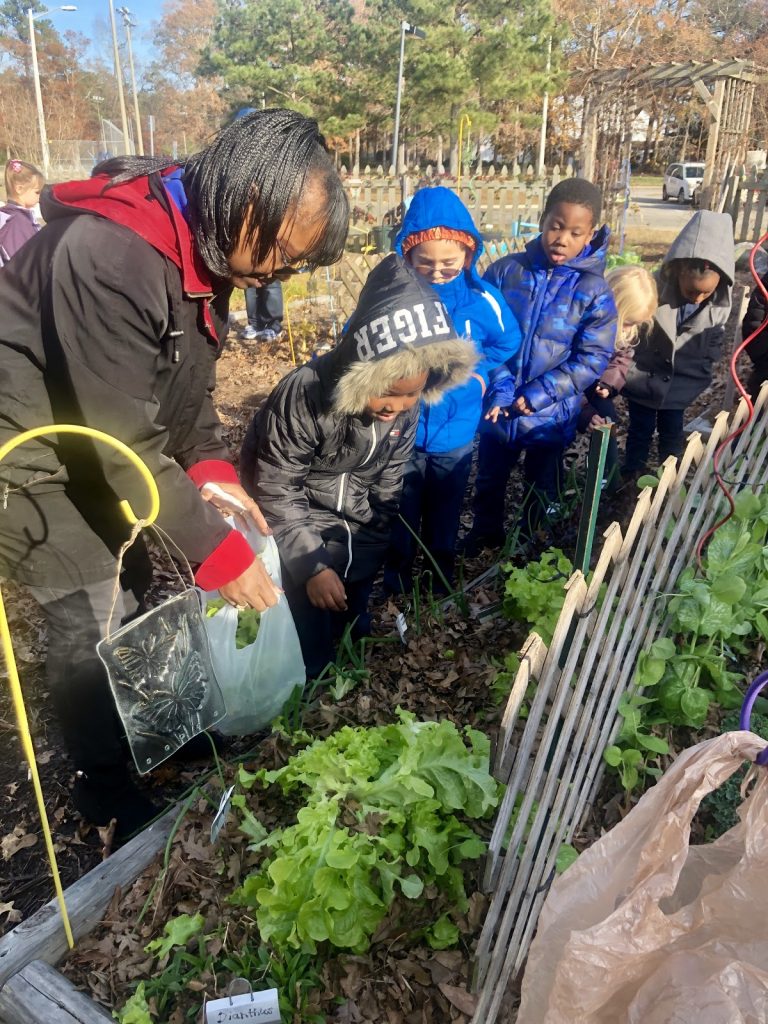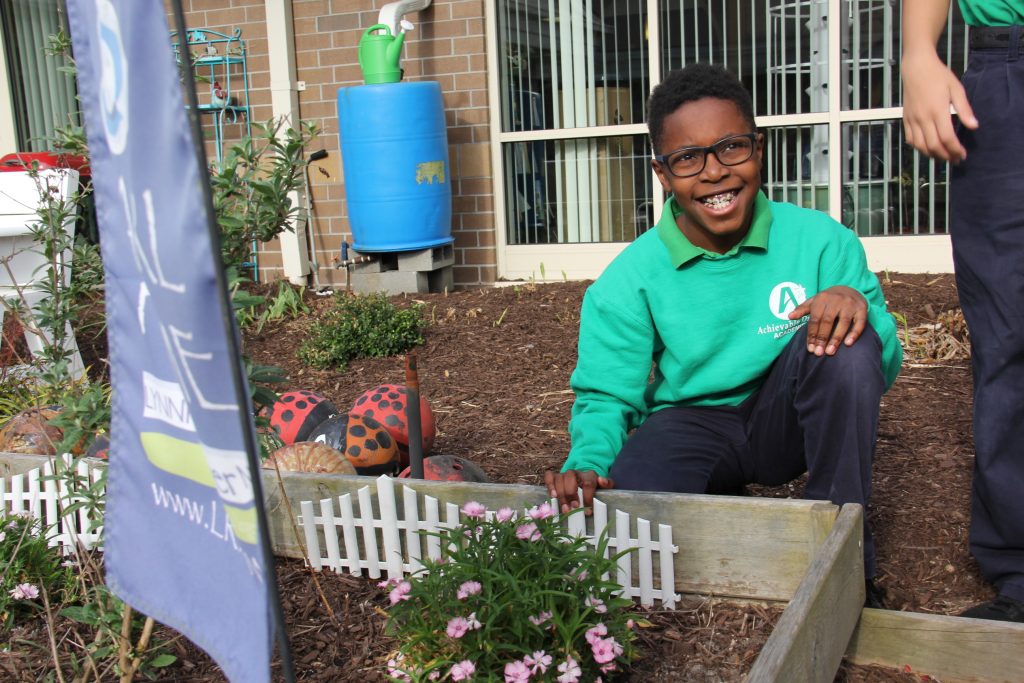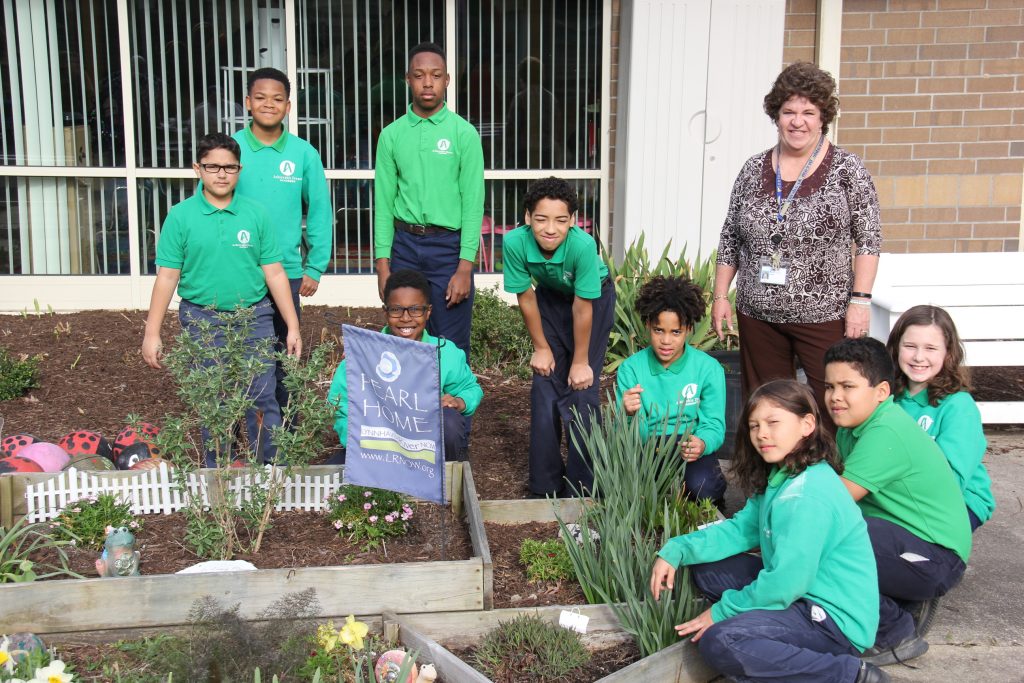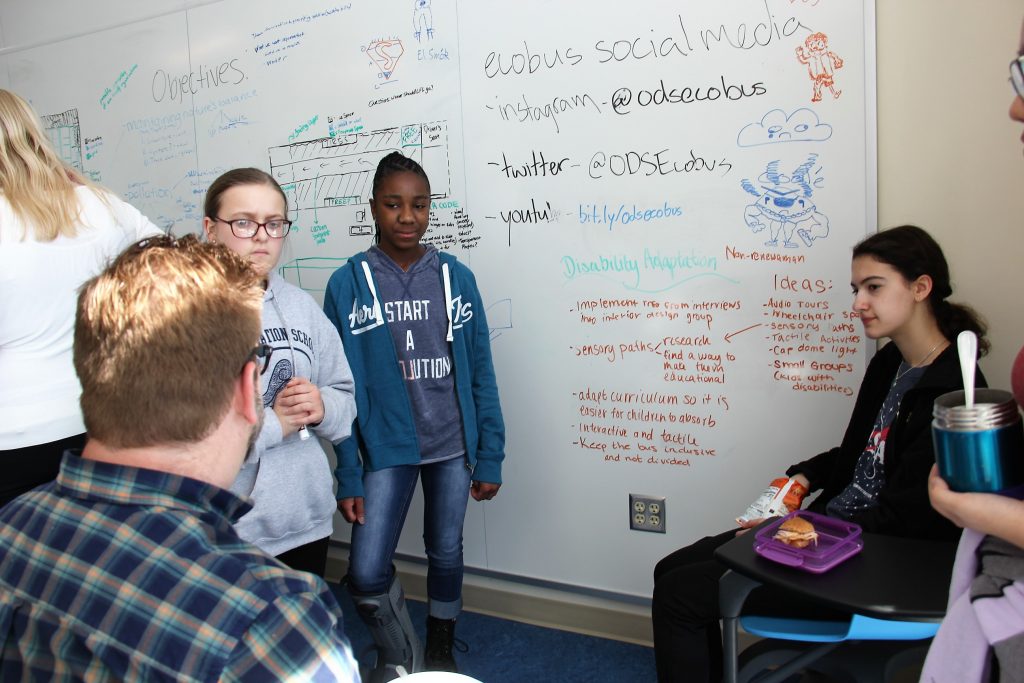Surrounded by plants and flowers they have nurtured with their own hands, the 10 students in the Garden Breakfast Club at Seatack Elementary School An Achievable Dream Academy arrive at school early every morning. They enjoy their first meal together on what they have dubbed “The Lorax” tree stumps, located in one of the school’s three community gardens.
Across town, at Old Donation School (ODS), eighth-graders meet for lunch every Tuesday and Thursday to brainstorm design ideas and ways to get the community involved in helping support their creation of a traveling Eco Bus.
And in another corner of Virginia Beach, Green Run High School and Green Run Collegiate students in the oceanography class spend a morning at White Oaks Elementary School, engaging their younger counterparts on why it is important to repurpose plastics.
These are just a few of many ways schools are partnering with community organizations, volunteers or even other schools to start conversations about sustainability.
“It’s important to take care of the Earth because the Earth takes care of us,” student Max Ramirez shared as he opened his milk carton while sitting on a bench in Seatack’s courtyard garden.
These gardens, which were first planted nearly five years ago thanks to a Virginia Beach Education Foundation grant, have earned a Certified Wildlife Habitat designation from the National Wildlife Federation. Several volunteers serve as mentors or tend to the gardens and several organizations have provided funding, including the Cavalier Garden Club, the Surfrider Foundation Virginia Beach chapter, Keep Virginia Beautiful, Whole Foods and more.
In addition to the gardens and the daily Garden Breakfast Club, the school has a Go-Green student club focused on sustainability, summertime Watering and Weeding events for families to harvest produce to take home, an annual “Veg Fest” where students vote on their favorite fruits and vegetables and an adult garden club to educate families about growing their own fresh crops at home.
The school’s gifted resources teacher, Marie Culver, who grew up gardening with her father, wanted “this generation to not skip the wonders of being outside in nature.” But for her, the garden serves an even greater purpose: helping at-risk students – many of whom return when they are in middle or high school simply to be part of the garden club again.
Like Culver, ODS teacher Jared Fritzinger hopes that the Eco Bus, in addition to teaching students about sustainability, has a greater purpose.
“We really do have good sustainability education embedded throughout the curriculum, but some students get things that others don’t get because there is more interest in their community around the school,” he said. His hope is that when the bus rolls up to a school, it’s more than a museum piece for the day. He hopes that teachers can use the exhibits as a springboard to teach sustainability.
But as students working on the Eco Bus met for one of their Tuesday lunches, one student working on generating outreach struggled since their ideas are dependent on the bus generating community support and funding. An exterior wrap that must be added to the bus is one of the items needed.
“Right now you are attempting to do something that no one has ever tried to attempt,” Fritzinger said with resolute belief. “I’ve seen hundreds of these buses made. But here is the thing, I am specifically working with middle school students. People don’t think that you can do this sort of stuff. So it’s messy, it’s slow, it doesn’t look like there is any progress but then you are going to have a ‘Eureka’ moment and produce something that’s really beautiful. I have no doubt in my mind.”
Those words of encouragement reinvigorated the student back to brainstorming ideas with her team.
One table over, Marissa Burek was enthusiastically sharing ideas on how to make the bus adaptable to children of all abilities, including children who might have sensory, vision or hearing impairments. “I want all children to experience the importance of the Eco Bus. It’s our mission.”
Stay up to date on the progress of the Eco Bus, Seatack’s gardens and many other sustainability projects that students are working on by visiting the sustainable schools section on vbschools.com.




